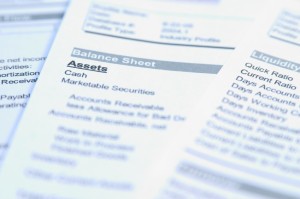
I’ve been working with the new version of QuickBooks the last couple of weeks. And that activity has made me think in very general terms about the sort of accounting system a small business or investment venture needs.
Though you or I can focus on product features and look at product reviews for insight, I think we often want to come at this decision from a different direction if we’re looking at what’s best for a small business or investment venture. Specifically, I thnk you want to consider three tips:
Choose an Accounting System Your CPA and Community College Support
Here’s my first tip: Be sure to choose an accounting system that both your accountant and your local community college will support.
In other words, you want an accounting system for your new small business or investment venture that your accountant will help you with. If you have a question about how to record some transaction, for example, you want to be able to ask your accountant. And if you make a mess of some part of your financial records, again, you want to be able to ask your accountant for some help. In short, unless you are an accountant yourself, you need to have an accounting system that your accountant will support.
Note: This requirement means that many businesses (though not all) will need to use a program like QuickBooks, Quicken or some other similarly popular accounting program.
But you can’t focus just on your accountant’s support of the accounting software system.
You also need to make sure that you, or your spouse, or the new employee you hire can use the accounting software. After all, most of the accounting and bookkeeping work will, for most small businesses, be performed by in-house personnel. Accordingly, make sure that your local community college offers classes in the accounting software you choose. You want software that someone can learn (or partially learn) by attending a workshop or short class at, for example, Bellevue College if you’re living and working on the east side of Lake Washington.
Choose an Accounting System that Produces Balance Sheets Needed for a Corporation’s Return
And now a quick point. You want an accounting system that will produce a balance sheet that works for your corporate return. The reason for this is simple: At some point, hopefully not too far into the future, you’ll need to include a balance sheet with your corporation’s tax return. (If you’re not a corporation right now, hopefully you’ll also need to make that upgrade, too, sometime in the not too distant future.)
Note: Under current rules, a “C” corporation or “S” corporation doesn’t need to include balance sheets with its return unless the revenues or total assets exceed $250,000. Small corporations, therefore, may be able to avoid including balance sheets. But once a corporation crosses the $250,000-threshold, it needs to be able to produce good balance sheets–even if only to correctly and completely prepare a tax return.
By the way, what the balance sheet requirement means is that you can only use something like Quicken (or another checkbook program) if you don’t have to track inventory. In other words, Quicken or another checkbook program will produce workable balance sheets if you’re a service business. (These service business balance sheets may show only one asset–cash.) But if you buy and sell inventory (like wholesalers and retailers do) or if you make and sell inventory (like home builders do), you need to be able to track inventory in your system. And that means you can’t use a cash-centric, checkbook program like Quicken because such a program won’t correctly put inventory on your balance sheet.
Choose an Accounting System that’s Ubiquitous
One final suggestion: I think you want to choose a popular, well-liked, well-supported accounting system that’s supported officially and unofficially not only by the software company that developed the program, but also by a small army of consultants, accountants, training companies, and so on.
Yes, programs like QuickBooks and Quicken fall into this category.
But you aren’t limited to using QuickBooks and Quicken. There are other, more niche-y (often more expensive) accounting software programs such as those that support certain industries or those that are based on a higher-end accounting program or database platform. And you can use these programs, too.
What you want to avoid by picking a popular small business accounting program is the problem of having a great accounting program that isn’t supported or updated because the original software company goes out of business. Even a perfectly-tailored-to-your-business accounting program probably isn’t worth it to a small business if, with the next tax law change or computer operating system, your accounting system implodes.